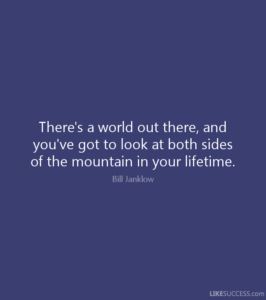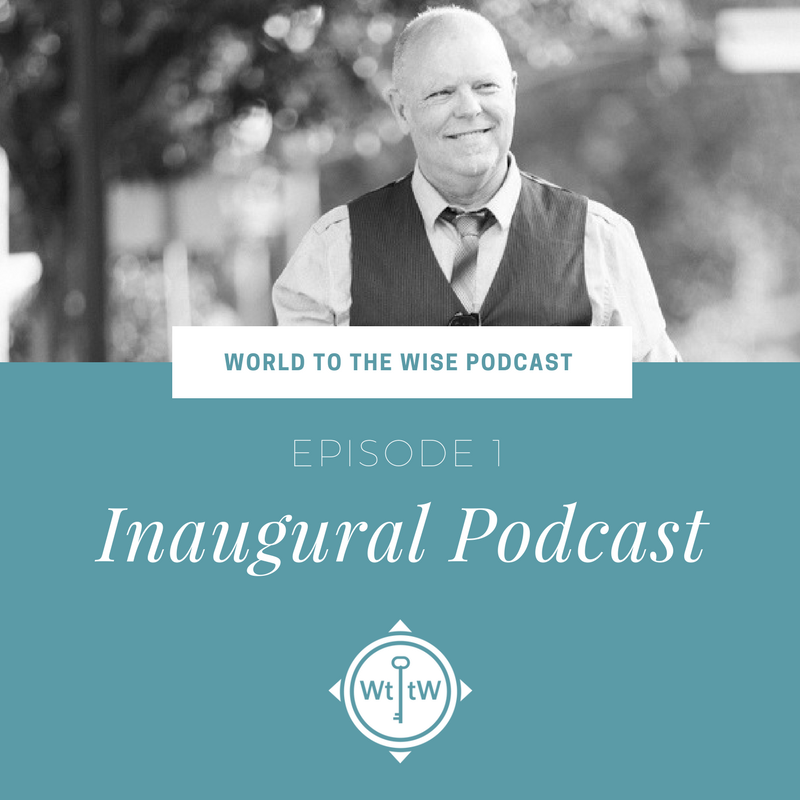I've heard a number of people say they've stopped listening to the news because it's so depressing. I get it. If we are tempted to look back on a time that seemed particularly peaceful to us, it might be because we personally weren't facing challenging circumstances, or maybe because things were relatively peaceful in our surroundings, including in whatever country we live in.
But it's your NAME
What You Can't Know About Your Country Until You Leave It
My wife and I took a brief road trip last weekend. I like road trips except for one thing: I get so sleepy behind the wheel. Enter the audio book. This time we chose a book that had been mentioned by a good friend. Don't Let's Go to the Dogs Tonight takes place in Southern Rhodesia during the time the nation becomes Zimbabwe. Since Becky and I spent two months in Zimbabwe just five years after the war of independence, we were immediately taken back to those life-shaping experiences as we listened. This enabled us to stick with what others might find a bit of a sleepy read.
Author Alexandra Fuller recounts with an incisive style a childhood reminiscent of the American West, where tough, white pioneers make a life for themselves amid punishing conditions in a tumultuous time and no shortage of adversaries. Hers wasn't an easy childhood. But one thing jumped out at both Becky and me at the same time: when Alexandra left Africa for England for the first time, she realized there were certain things she couldn't know about Zimbabwe until she left. So true.
There are things you can't know about your home country until you leave it.
In my case:
You can't know people in the South really are friendly, for the most part, until you've lived somewhere else. (A friend from New Jersey pointed this out to me.)
You can't know there is more than one way to do things, like flush a toilet. Or dry your clothes.
You can't know everyone doesn't have a choice of 78 breakfast cereals at the supermarket.
You can't know that you live in a country where way too much is taken for granted, as if we deserved everything we have.
You can't know that, in spite of all the pettiness, the infantile political wrangling and the frenzied climate, we still have a system that has been one of the most spectacular success stories in history...
You can't know you live in a place the world envies, and marvels at, and sometimes shakes it head at, but pays attention to ...
...until you've left.
Then you come back and everything is the same -- except the way you see it.
Stereotypical Stereotypes
I was at a symposium last night on Russian-American relations moving from the Obama years into the Trump era. While most of Dr. Mark Katz's remarks and the questions asked of him centered on Trump and Putin's relationship and speculation about what that might look like moving forward, one question was asked that got me thinking about stereotypes. The question was something to the effect of, "How fair is it for Americans and other Westerners to believe that Putin's strong man persona is representative of the Russian people and culture?" The question put its finger on a common and universal tendency: to assume that everyone in a given group or culture is the same. We would of course deny that we think in such base and ignorant terms, but most of us are guilty of this at one time or another.
In the case of Vladimir Putin, we might think that most all Russians only understand the language of power and force, as Putin's MO is widely believed to be. And it is true that there are many Russians who are glad to have a leader who stands up to the West and is committed to restoring Mother Russia to her former glory.
But there are probably just as many Russians who would like a "kinder and gentler" leader who doesn't enjoy provoking the West and suppressing dissent. The few Russians I know personally are kind, caring people who have mixed feelings about their president -- like most of the world feels about its leaders. Some will point out that Putin is a vast improvement over his predecessor, Boris Yeltsin.
We could think of other examples of stereotypes. Are all Germans super organized and efficient, with a hard exterior? Nope.
Are all Japanese workaholics? Nope. Not quite!
Are all Australians laid back? I don't think so, but I'm still looking for an uptight Aussie.
Aha. So here we see that there is often a kernel of truth to certain stereotypes. There is usually a reason why they were formed in the first place. The truth is that stereotypes can at times be useful, up to a point. If I were putting together an international team, I wouldn't be wrong to go to Switzerland or Germany to look for an administrative type, for example. International marketing firms will tell you that stereotypes based on studies and market research prove invaluable in their marketing strategies.
But stereotypes can just as often get us into trouble. Chances are, as soon as we allow the stereotype to take shape in our minds, one or more exceptions will present themselves.
In the current dialogue in the US about race, this is particularly dicey. It's a little too easy to assume all members of a certain race feel or behave the same way (racial profiling comes to mind). Polls and surveys and market research may help, but true understanding won't come until we sit down and listen to each other.
I'm going to have just such an opportunity on Jan 27, when I have been invited to moderate a round table discussion on the current state of race relations in the US, including in the American church. If you're in the Nashville area, we'd love for you to join us. Details here.
Season 1 Wrap-up
This week we wrap up what for me has been a great ride, and I hope you’ve enjoyed it too. It’s been roughly 6 months and exactly 25 episodes since we launched in April, and we’ve been to a lot of parts of the world in that short time. The great thing about podcasts is you can go back and listen to ANY episode you may have missed along the way — or RElisten to something that’s been triggered by something you’ve heard or experienced lately.
In the inaugural episode I laid out the vision and purpose of this podcast: “to stretch the borders of your thinking, broaden your perspective, and equip you to engage your world.” I hope we’ve done that — from interviews with fascinating people like Dr. Ming Wang, a renowned eye surgeon and philanthropist who grew up under the oppression of the Cultural Revolution in Mao Tse Dong’s China. — to Chris Guillebeau, who recently completed a personal quest to visit every country on the planet.
I particularly enjoyed my conversation with Mike and Patricia Majett, who were very honest in describing what it’s like to live as a biracial couple in today’s American South.
We got to know a medical couple, Drs. Eric and Rachel McLaughlin, in the impoverished nation of Burundi, and were inspired by the way they have poured out their lives on behalf of the poorest of the poor, not only by treating the sick but also by training indigenous doctors to carry the torch.
We visited New Zealand, vicariously, through the eyes of Neil and Jill White, who are still waiting for you to pay them a visit in one of the most beautiful and interesting places Becky and I have ever been.
We visited Turkey, which had just been shaken up by an attempted coup and nerves were still on edge. We also heard from two moms who are raising their children to be bilingual — one is a native English speaker teaching her children Spanish, and the other Italian facing the uphill challenge of teaching her children her mother tongue in an ocean of English speakers.
And I hope you enjoyed my interview with Lee Camp, where we discussed his book, Who Is My Enemy?, as well as Servant Group international Executive Director Dave Dillard. I found these especially thought-provoking, and great preparation for my summer discovery trip to Europe. You’ll remember that my wife Becky and I spent several weeks observing and learning about the refugee crisis there that reached a boiling point in the last year to two years. I recorded podcasts from each of the countries we visited: Switzerland, Greece, Germany, and France. As much as we’ve traveled in Europe, this was probably more of an eye-opener than any other trip we’ve made, as many of the refugees took on names and faces, and true stories of suffering, bravery, desperation and heartache…and survival. As I said at the end of the trip, Becky and I didn’t come back with solutions to this complex dilemma…but we did come back impacted by the plight of these fellow human beings, many of which became our friends in a very short time.
It IS a complex situation. While I am generally in favor of any Western country taking in refugees who have lost everything to the atrocities of war (something that frankly remains the stuff of books and movies for most of us), I also recognize that there are inherent risks. I have questions about the methods of determining where to place refugees, and to what degree we should expect them to integrate into mainstream culture. I’m also aware that these decisions are largely made by people whose lives will likely never be directly impacted by the situation.
In the meantime, I believe in the adage “Think globally and act locally,” so we are becoming more familiar with the efforts in our own city to assimilate the thousands of refugees right here at home.
In August we turned a corner and began a series on subcultures within the United States. The truth is that the notion of a typical American is pretty much a myth, and we have much to learn — whether Americans or not — about the many subcultures that make up the American patchwork. Although we barely scratched the surface — so far — we met some interesting people. From the Navajo Nation and Santa Fe in the West, to the gentle Southern culture of the South Carolina Low Country, from the Amish community to the Nashville songwriters’ culture to the Indian American community, we tasted a lot of different flavors — all of them American.
You can of course find any and all of these episodes under the podcast tab on this website.
So now we’re taking a brief break, when we’ll be ramping up for more discoveries, stimulating conversations, aha moments, and places to explore on this planet.
In the meantime, I do hope you’ll still be following my blog. Becky and I are leading a group of American artists on a fall break trip to Europe, where we’ll not only see some of the finest art ever made, but meet localcreatives for some cultural exchange and sharing of perspectives , and I’ll be doing some posting from there.
Speaking of which, if you haven’t already done so, you’re invited to like the World to the Wise page on Facebook, and you can find me on Twitter and Instagram at iDavidDurham.
Be well, travel safely, stay curious and we’ll see you soon for Season 2!
"There's a whole world out there..."
A couple of weeks ago I was interviewing a dear Indian-American couple named Pravin and Fiona. They have been living in the US for a number of years, have two sons born here, and are themselves on the path toward US citizenship. (You can find that interview here.) One simple thing that struck me is something Fiona said in response to my question of what took her some getting used to about life in these United States. She said something to the effect of "Sometimes Americans don't seem to know that there's a whole world out there."
Ouch.
I suppose on one hand our navel-gazing is understandable -- there is so much going on in this country, not to mention in our daily existence, that many might say they just don't have time to learn about the world out there. And I get it. Plus, our country is so vast, with so many beautiful places to see, one could spend a lifetime just traveling within the United States.
Here's what I suggest: if you like a one-dimensional life, one single perspective on things, a single way of doing things, of viewing the world, and already completely understand why people are the way they are...
...well, then, you're probably not reading this blog! Because this is the place where we have turned up our curiosity, where we believe the world has more to teach us than we can contain, and where we KNOW we are richer for every single thing we learn and experience from the OTHER -- whoever and wherever he or she may be.
Did you catch my interview with Navajo Nation member Dale Tsosie (pron. 'sosie') last week? He had some powerful things to say about his identity as a Native American, and how reading the Bible is what gave him permission to fully embrace his Navajo identity.
In this week's podcast I have the pleasure of introducing you to a wonderful lady named Sarah Lanier, whose book, Foreign to Familiar, is a fascinating and readable look into how different people behave based on the climate of the culture they live in -- hot or cold. You won't want to miss this!
American Subcultures: the Navajo Nation
Last week we began a special series on subcultures in the United States. There is so much to discover -- for Americans and non-Americans alike -- among the different people groups that make up the American patchwork, whether these are defined by geography, ethnicity, or perhaps interests and experiences.
This week we hear from Dale Tsosie, a husband, father, and grandfather from the Navajo Nation, the largest Native American reservation in the United States, covering an area of over 27,000 square miles. I was sobered by some of the things Dale shared from his heart, and I hope you learn as much from him as I did.
Join us next week for a look at another interesting American subculture, and if you have suggestions for this series, don't hesitate to email us at podcast@daviddurham.org.
Expand Your Borders
David Livermore, of the Center for Cultural Intelligence, takes us on a round-the-world journey where we discover not only fascinating things about other cultures, but also about our own culture and how we are perceived by the rest of the world. A great read for any curious soul, but we're also using this resource as required reading for the new Global Studies course we're developing.
Foreign to Familiar
Author Sarah Lanier offers valuable insights on distinctions between different cultures around the world. Although there are admittedly exceptions to some of the broad generalizations, anyone wanting to understand the why of certain cultures will be enriched and enlightened by this fascinating and accessible study.
Inaugural Episode
Welcome to the World to the Wise podcast! In this 9-minute initial episode I lay out the purpose of this podcast: to stretch the borders of your thinking, broaden your perspective, and equip you to engage your world. I'm reminded of one of my favorite Mark Twain quotes. It actually has to do with travel in particular, but you'll understand the connection with the purpose of the podcast:
“Travel is fatal to prejudice, bigotry, and narrow-mindedness, and many of our people need it sorely on these accounts. Broad, wholesome, charitable views of men and things cannot be acquired by vegetating in one little corner of the earth all one's lifetime.”
It is possible to "travel" to other parts of the planet without ever getting on a plane (the phrase "armchair traveler" come to mind.) The more time you take to explore and understand other cultures, other perspectives, and other ways of life and of viewing the world, not only will YOU be the richer, but the world will be that much better off as well.
I hope you enjoy this first episode. We're in for a fun ride! Not only is your feedback appreciated, we depend on it to help shape the show as we move forward. Send your comments and suggestions to podcast@daviddurham.org.
And if you like what you hear, please subscribe on your favorite podcast store site, and do me the favor of writing a quick review -- even one sentence -- which will help get the attention of the podcast distributors and increase our visibility in the increasingly crowded podcast world.
Enjoy!











